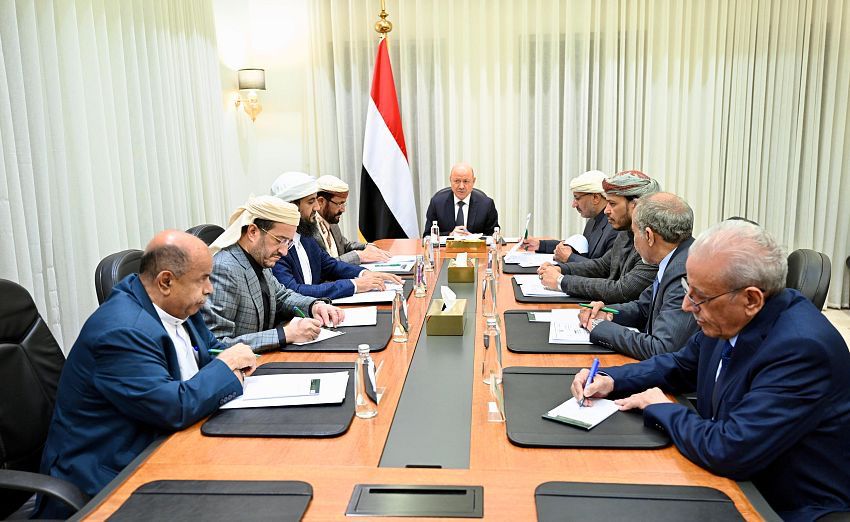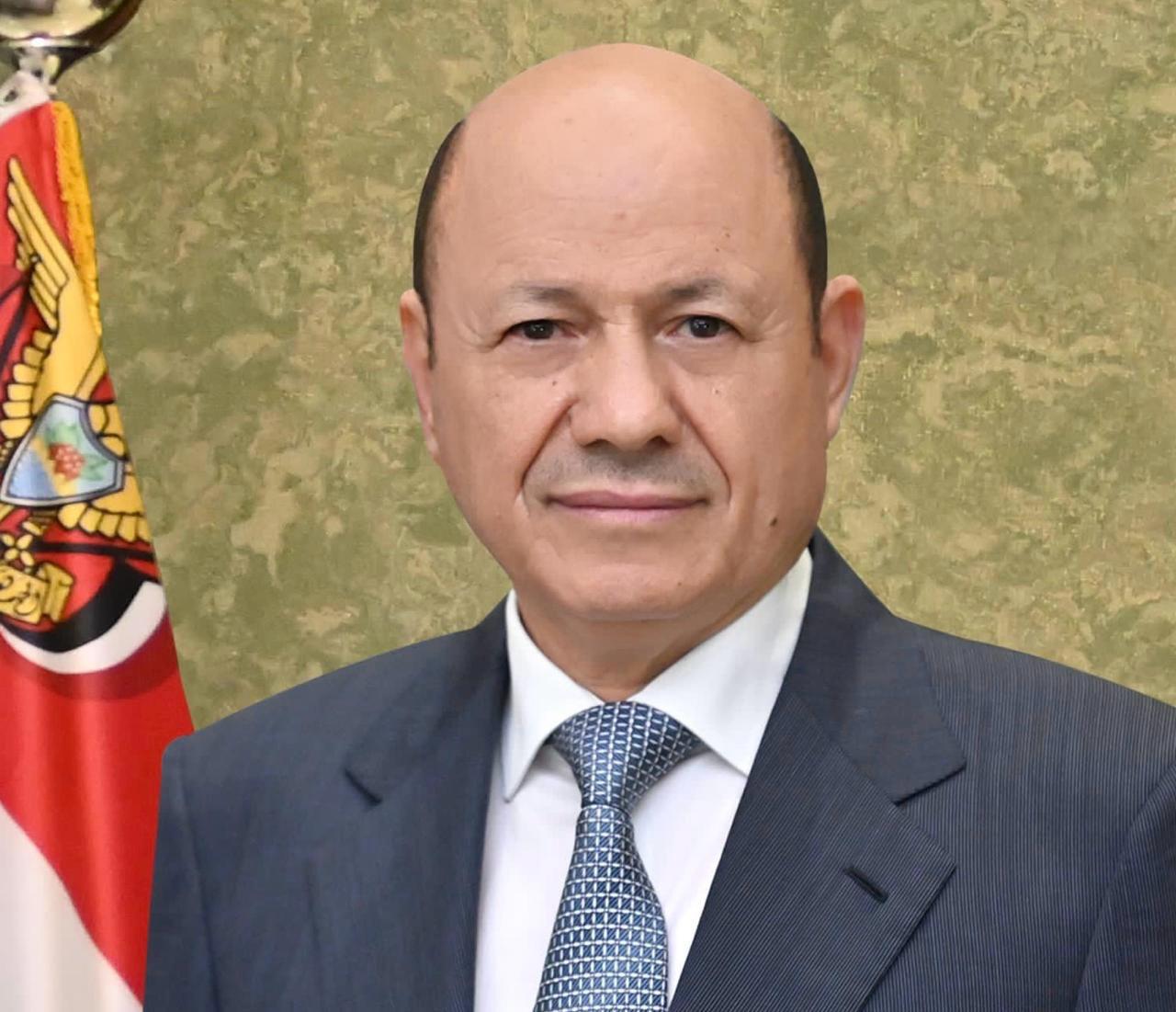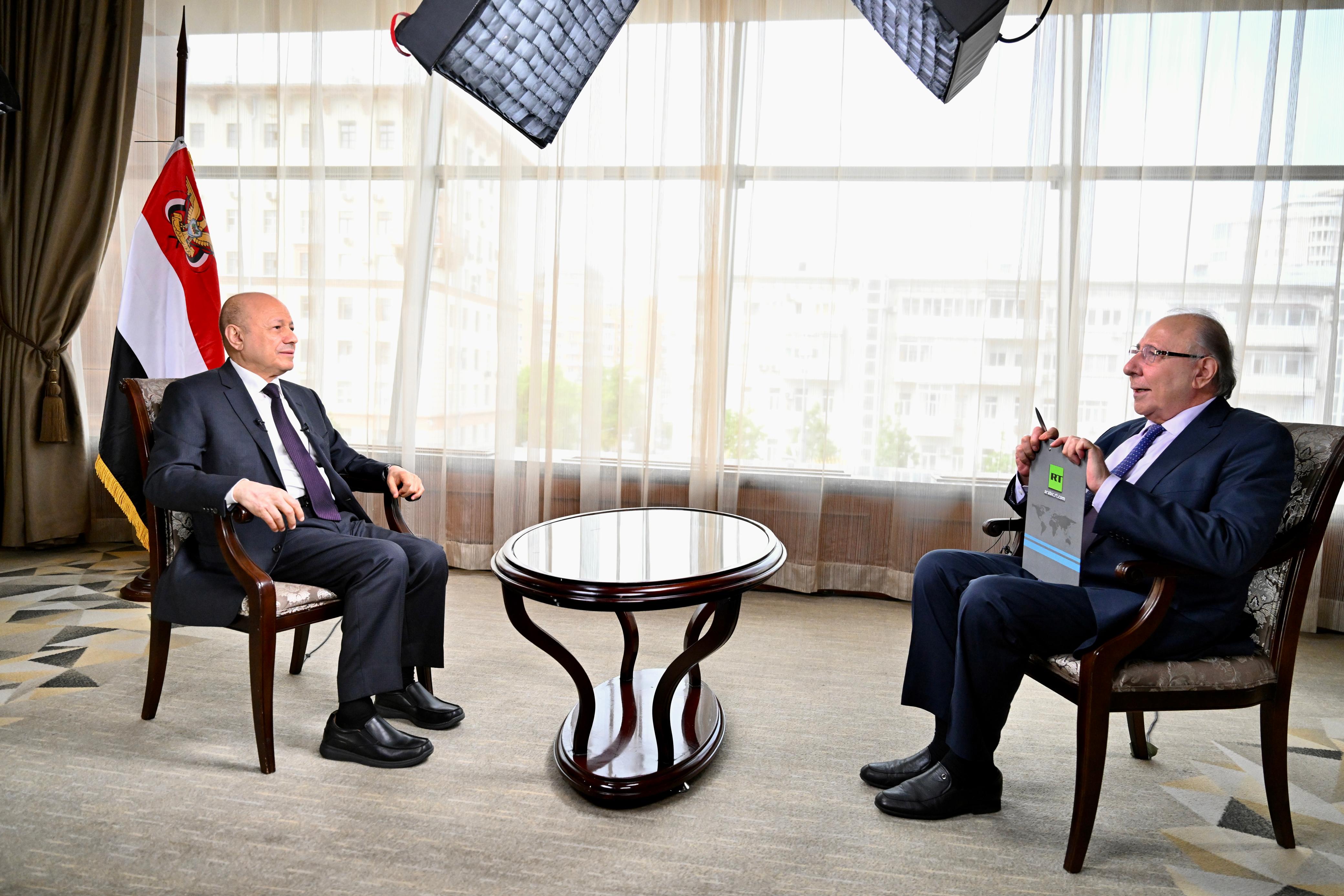
President Al-Alimi: Houthi Surrender to United States Confirms Force Is the Path to Peace
Aden
His Excellency Dr. Rashad Mohammed Al-Alimi, President of the Presidential Leadership Council of Yemen, expressed confidence that the Russian Federation will continue working with the international community to support the aspirations of the Yemeni people to restore state institutions, end the Houthi militia’s coup, and establish peace and stability in accordance with internationally recognized references—chief among them, UN Security Council Resolution 2216.
In an interview with Russia Today, the President stated:
“Russia’s stance will always be with the civil state and never with the ideology of racism and neo-Nazism adopted by the Houthis in Yemen.”
President Al-Alimi described the Houthi group as a sectarian theocratic group that does not believe in civil rights or political participation, but rather claims a divine right to rule over people.
He added:
“Therefore, Russia, with its history, culture, philosophy, and civil spirit, can never stand with such a Nazi group.”
His Excellency recalled Russia’s pivotal role in defeating Nazism during World War II, emphasizing that millions of Russians died to save humanity.
The President praised Russia’s stance in the UN Security Council since the Houthi coup, stating:
“Russia has always supported legitimacy and voted in favor of international resolutions supporting it—especially Resolution 2216, which is the roadmap for resolving the Yemeni issue.”
He reaffirmed the Leadership Council and legitimate government’s commitment to that resolution as the optimal roadmap for a comprehensive solution in Yemen.
Reiterating the government’s commitment to peace, President Al-Alimi said:
“We support peace because we—myself, my fellow Council members, and our allies in the Arab Coalition led by Saudi Arabia and the UAE—understand that a political solution is the best choice for the Yemeni people, the region, and the world.”
However, he noted that all efforts by the government, the United Nations, and mediators have failed due to the Houthis’ rejection of peace:
“They do not believe in peace.”
He pointed to the latest rejected initiative—a roadmap proposed by Saudi Arabia. Despite the Leadership Council’s approval, the Houthis continued launching terrorist attacks on oil facilities, civilian areas, and military fronts under legitimate government control.
He added that the group escalated its attacks to the Red Sea, targeting international navigation, under the pretext of supporting Gaza by launching rockets aimlessly.
He said:
“By doing this, they provoked foreign intervention and caused a major disaster, destroying Yemeni infrastructure—ports, airports, and factories—while still claiming they are achieving victories.”
President Al-Alimi provided an example of the Houthis’ destructive actions:
They caused the destruction of four Yemenia Airlines planes by seizing and insisting on keeping them at Sana’a airport, despite the high likelihood of Israeli airstrikes.
He explained:
“We tried, through mediators, to negotiate with the Houthis moving the planes to Aden, Saudi Arabia, Oman, or any other country, but the Houthis refused. As expected, Israeli strikes came and destroyed three planes.”
The fourth plane, originally in Oman, was also destroyed. The Houthis insisted it be returned to Sana’a and threatened to attack airports in Aden, Hadramout, Shabwa, and Mokha if it was not allowed to return.
He added:
“To avoid more destruction and war, we allowed the plane to return to Sana’a, and two days ago, Israeli airstrikes destroyed it.”
The President described the Houthi group as nihilistic and unfit for peace, affirming:
“We are determined to restore the state—whether by peace or by war.”
On the internal dynamics of the Presidential Leadership Council, he explained that the Council reflects the country’s political diversity:
“It includes various political components and is not a carbon copy of one party.”
His Excellency added: “however, the Council shares common principles that govern the transitional phase, including the power transfer declaration, the Riyadh Agreement, Gulf Initiative, Riyadh Consultations, and UNSC Resolution 2216—all outlined in the transfer of power declaration”.
He added that the Council’s diversity is not just political but also geographic:
“We wanted all of Yemen’s geography to be united in confronting the Iranian-backed sectarian project.”
The President affirmed that the current common goal is to restore the state, and later on, the future of Yemen’s political system will be seriously addressed.
Regarding relations with the U.S. administration, President Al-Alimi stated:
“We believe that the Yemeni state project is supported by all global powers—including the United States, European Union, Russia, and above all, our Arab brothers led by the Saudi-led coalition.”
He praised U.S. President Donald Trump’s decision to designate the Houthis as a terrorist organization, calling it “a positive and realistic move,” and likened their actions to those of Al-Qaeda and ISIS.
President Al-Alimi stated that the Houthis’ surrender to the United States confirms that this group only responds to force.
He explained that when U.S. strikes targeted their military infrastructure and began pursuing their leaders, the Houthis agreed to halt attacks on American vessels.
He concluded:
“This sends a clear message to us at home and to our Arab brothers, especially in the Gulf—that this group will never submit to peace except through force.”
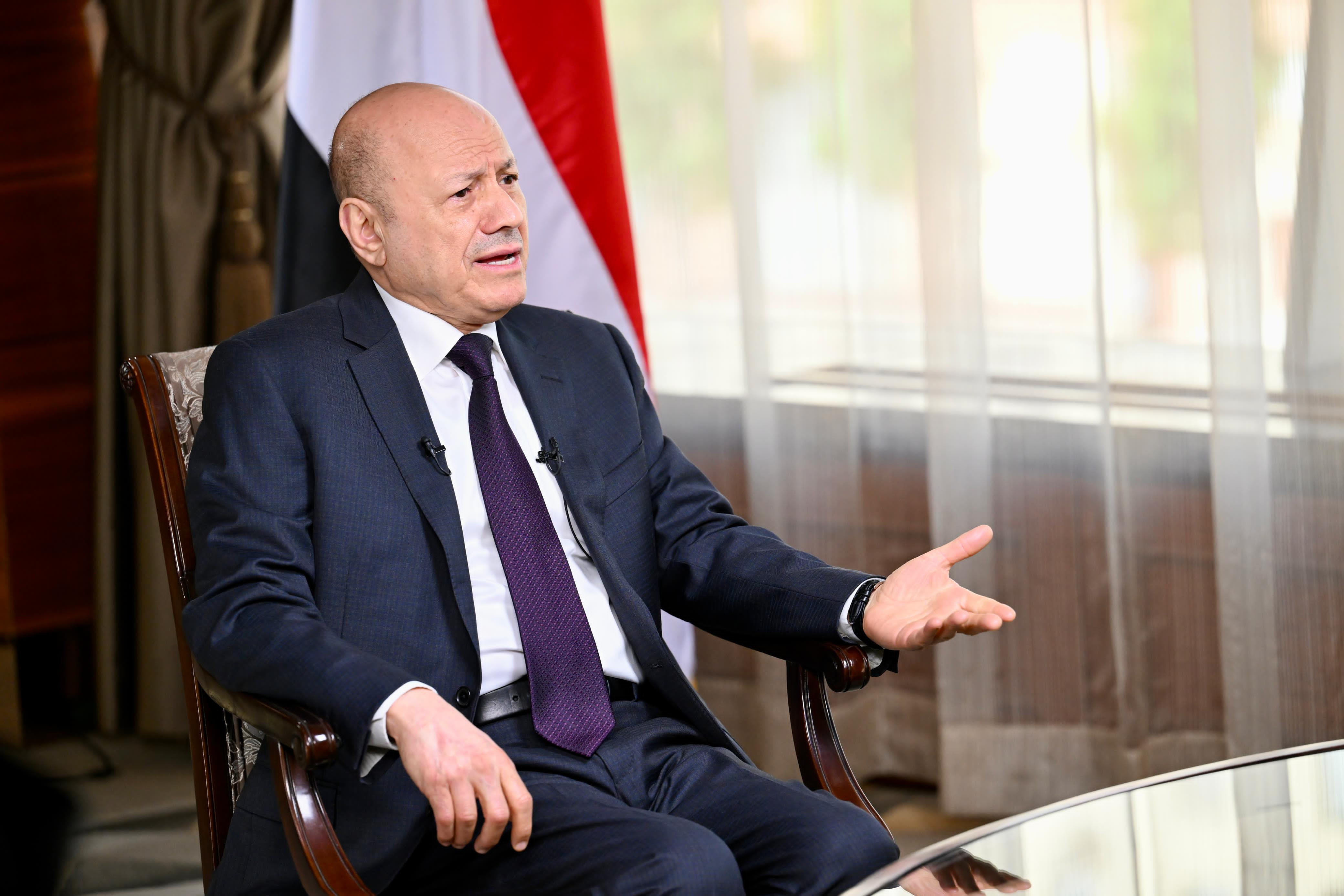
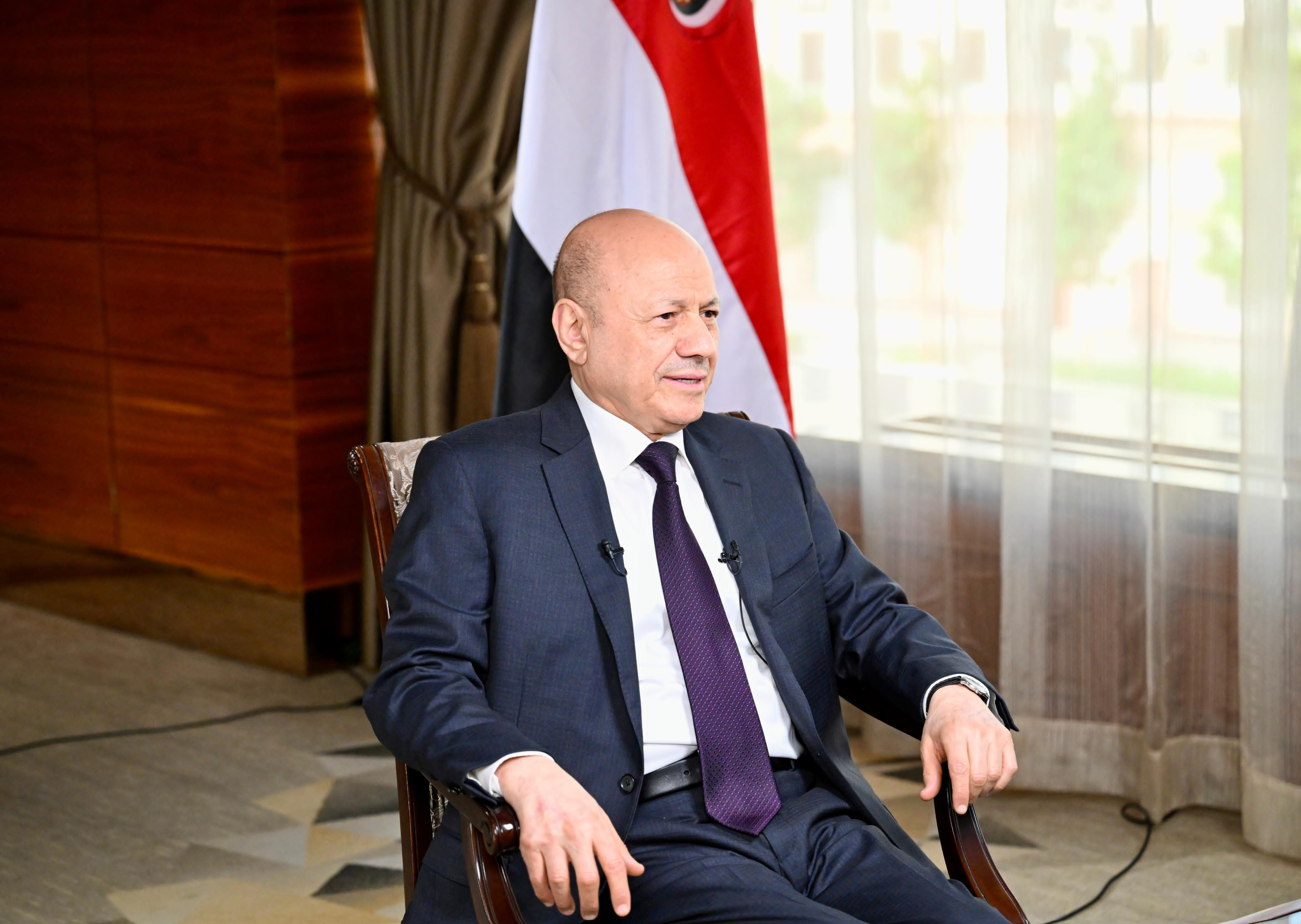
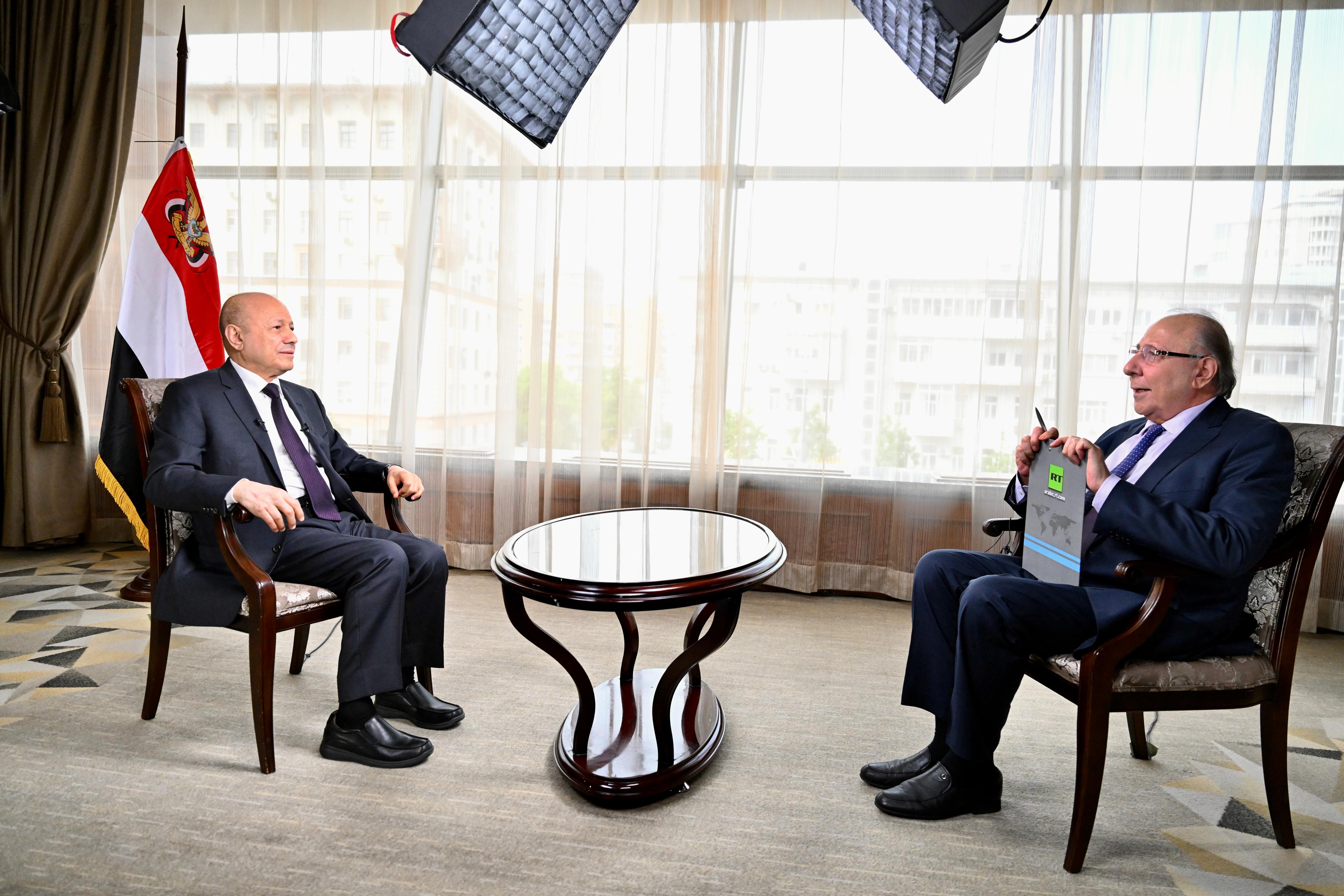
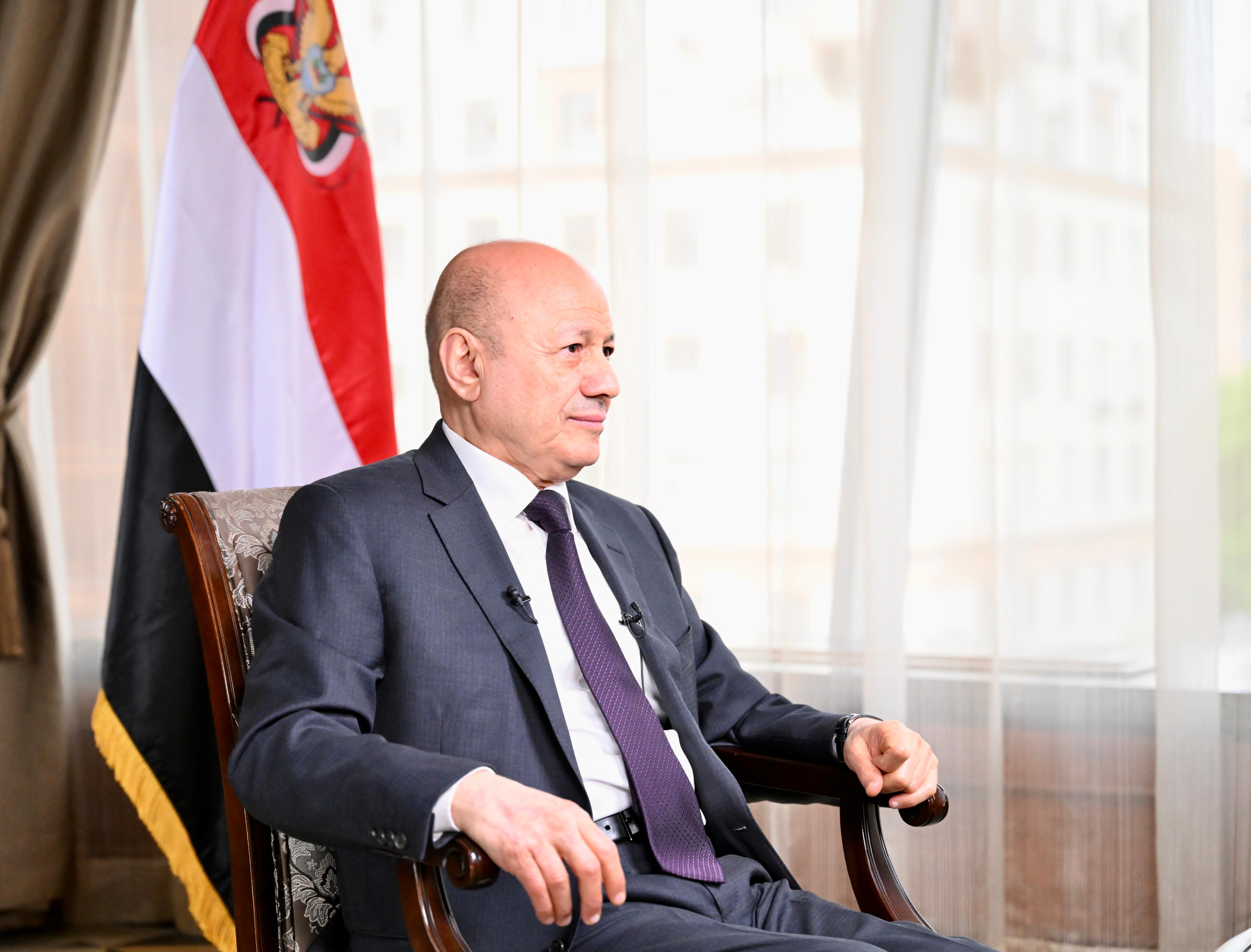
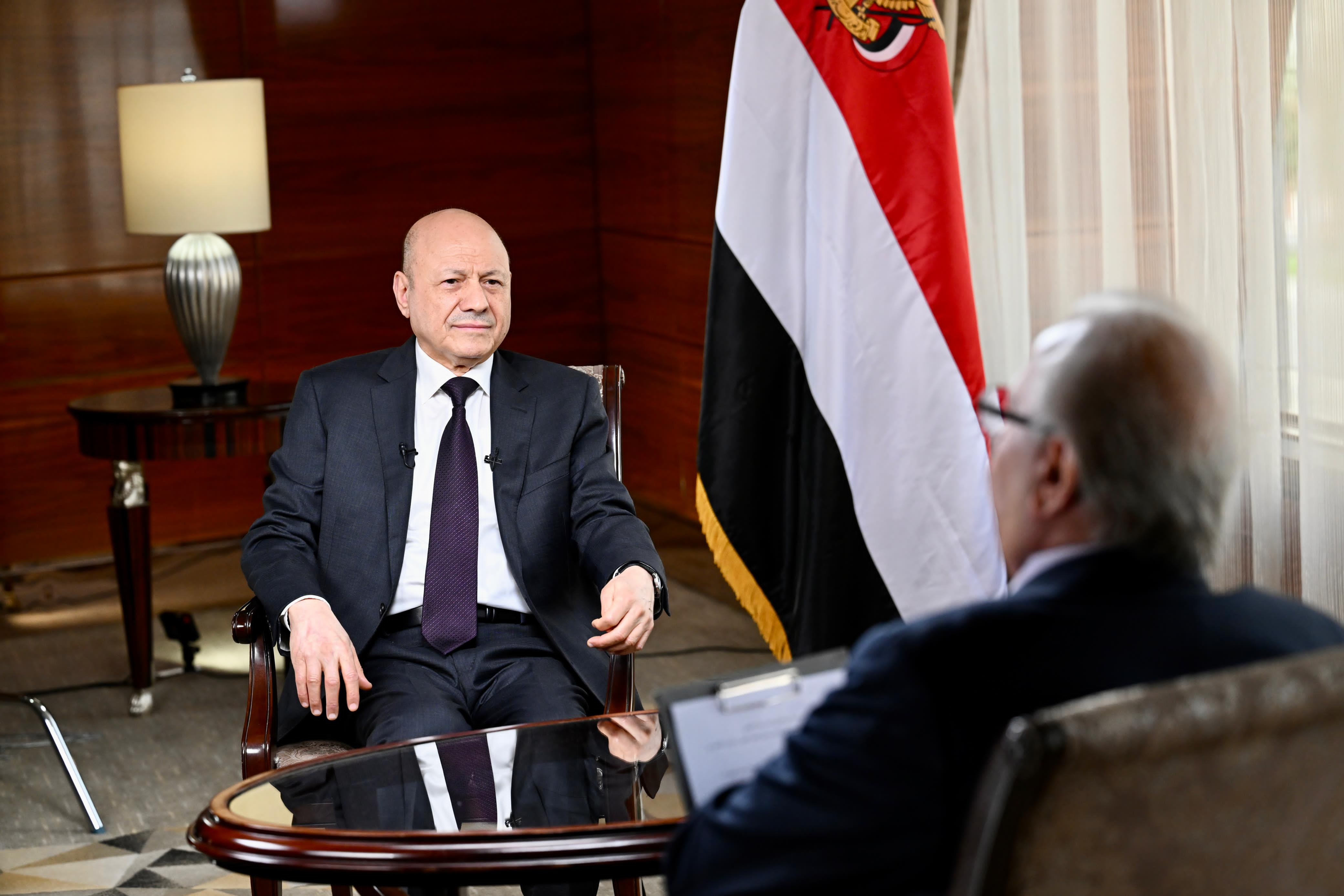
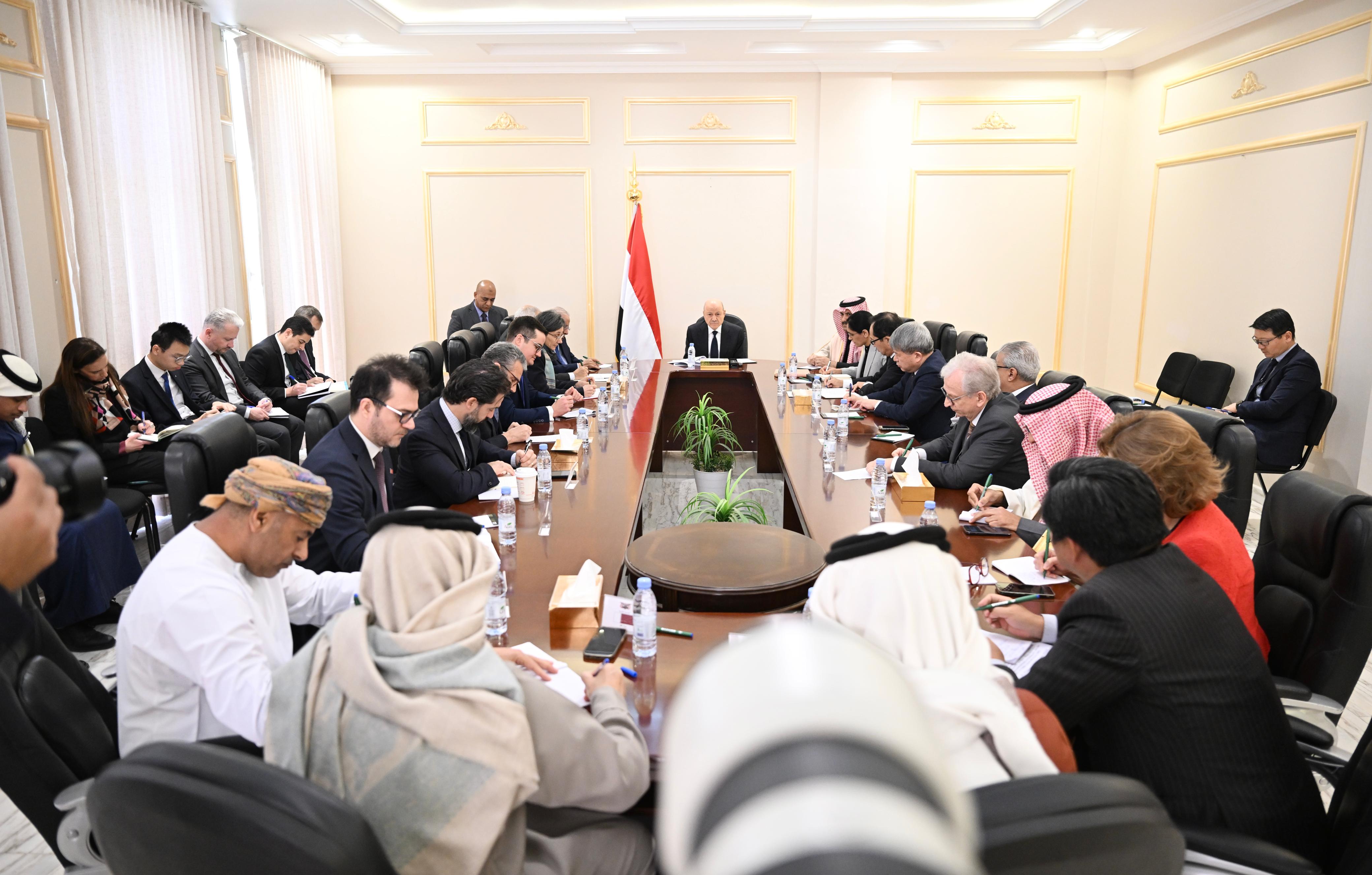
President Al-Alimi: Developments on Ground Are Promising and Refute Claims of a Vacuum and Worst-Case Scenarios
His Excellency President Dr. Rashad Mohammed Al-Alimi, President of the Presidential Leadership Council, said that state institutions are making tangible progress in unifying security and military decision-making

